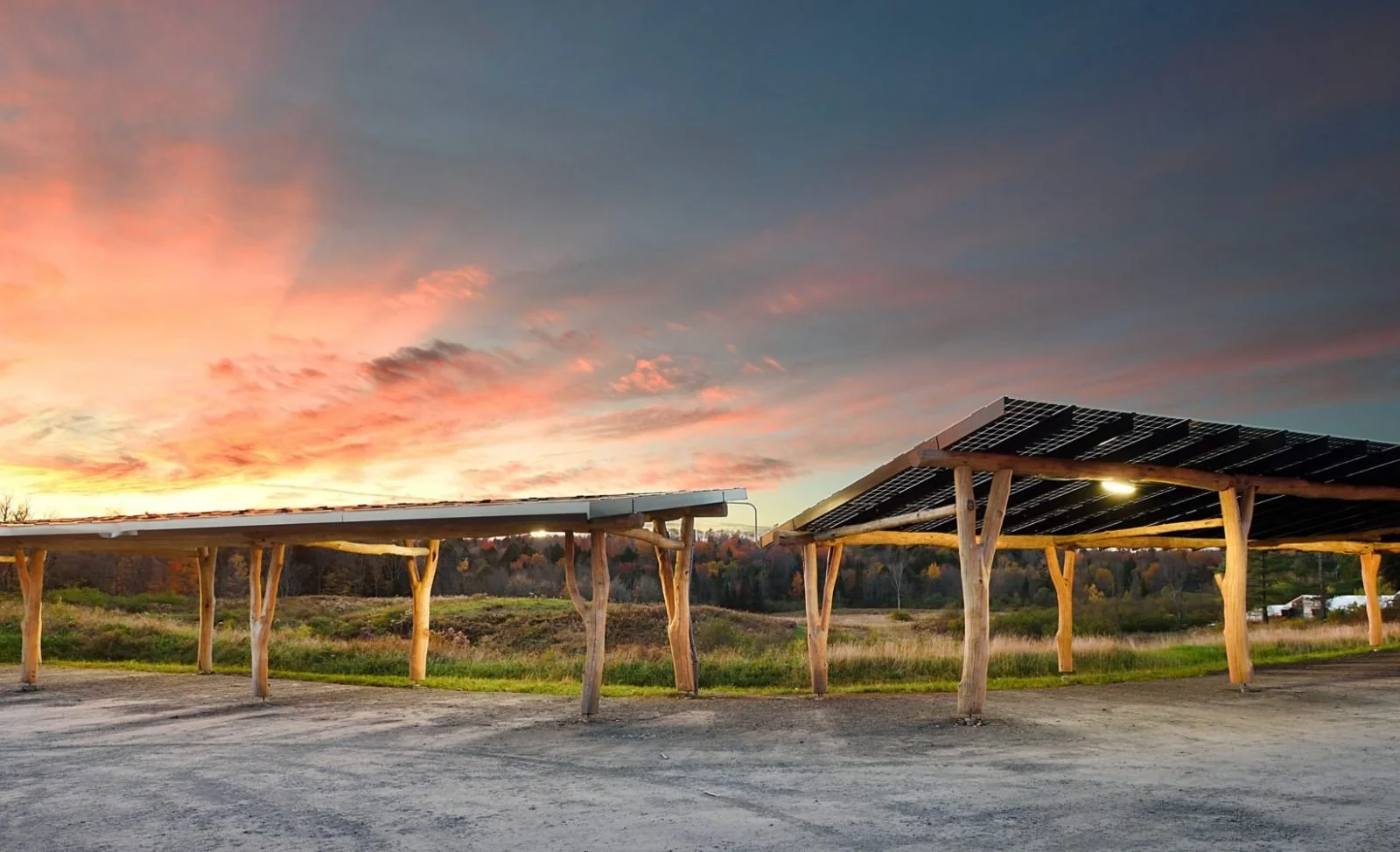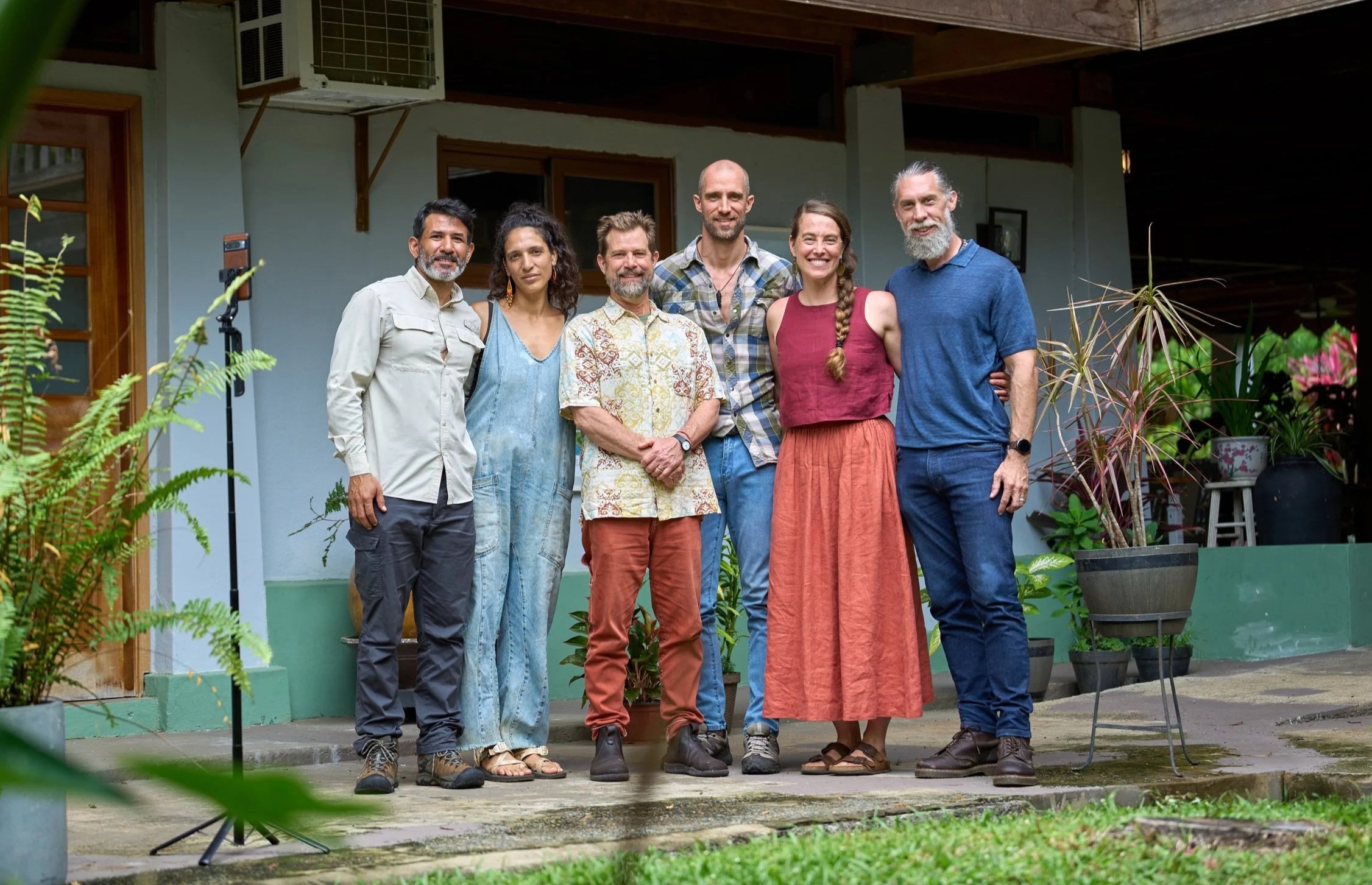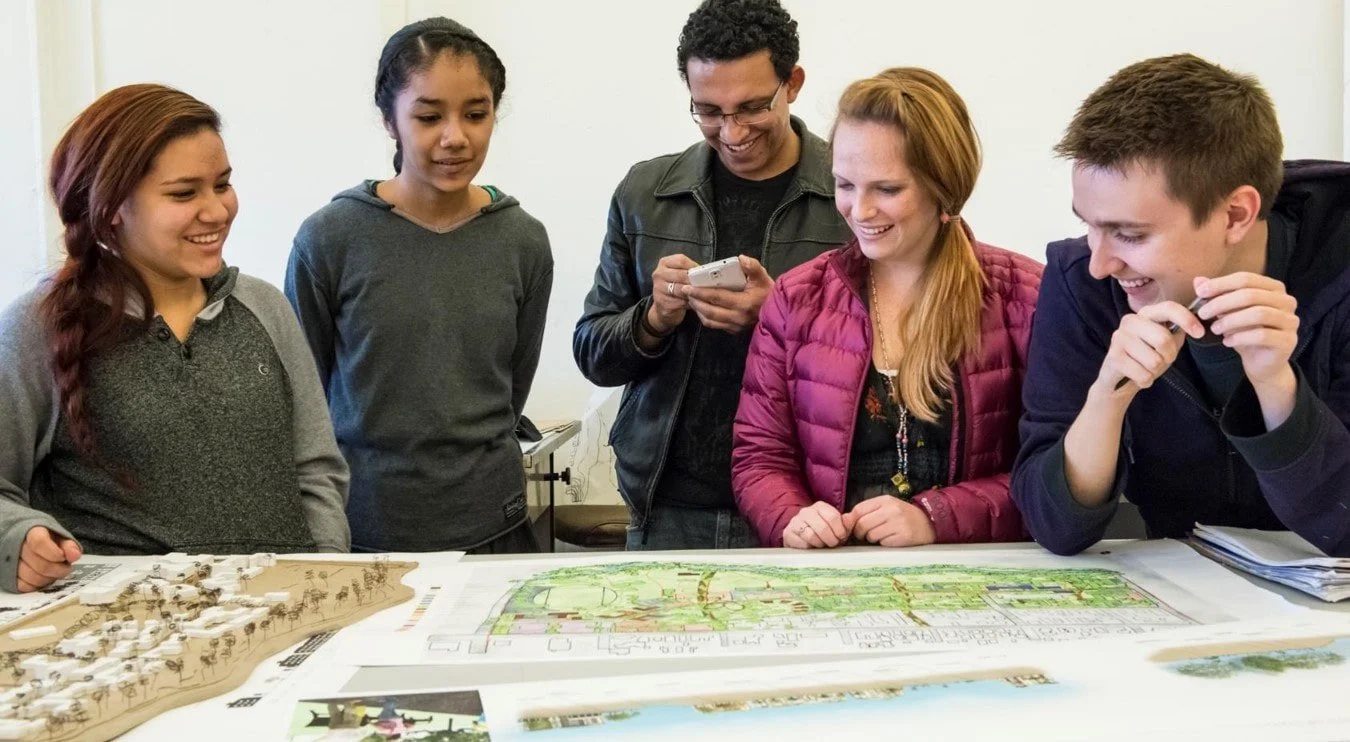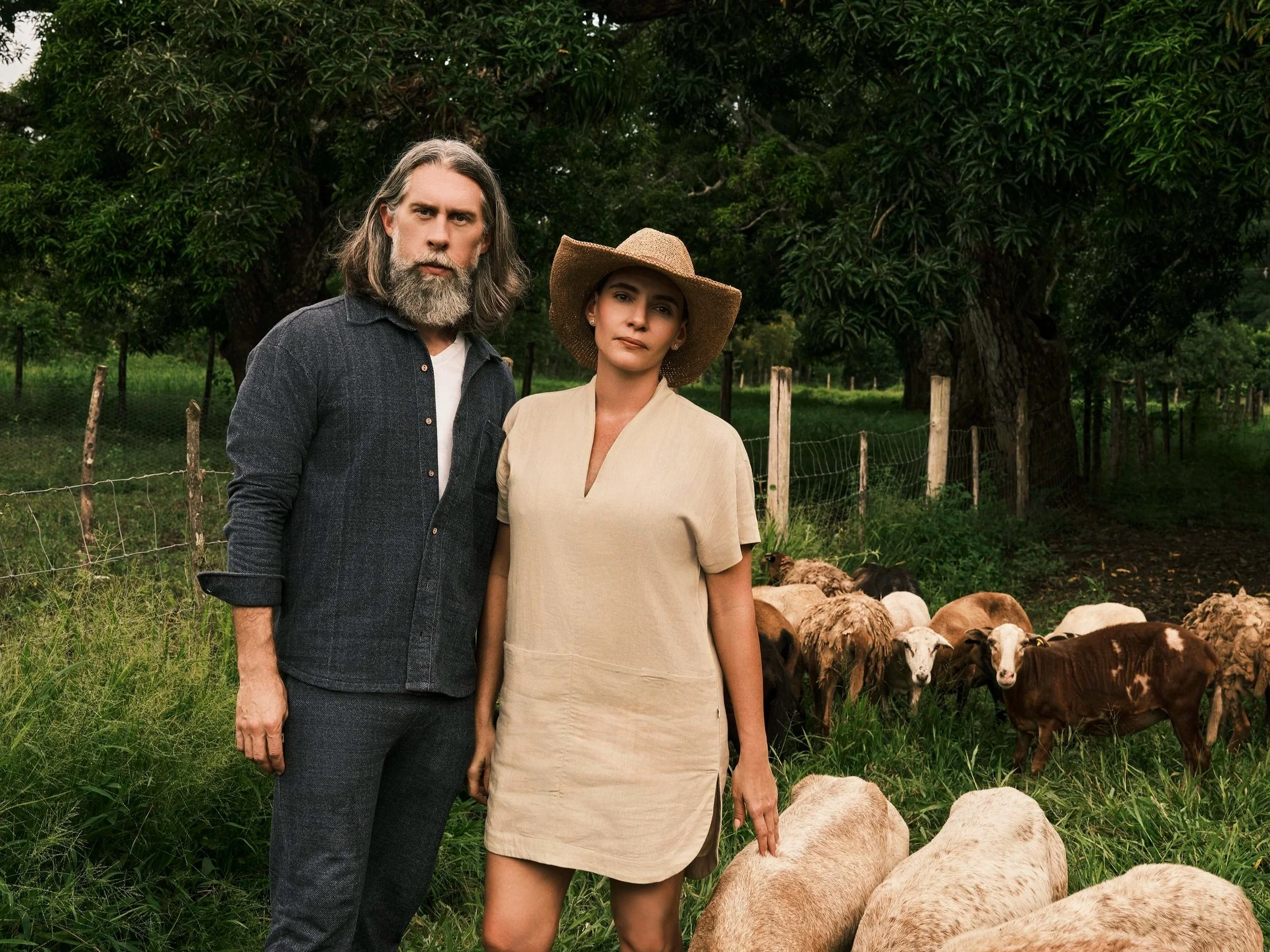Building With the Forest: Amelia Baxter and WholeTrees Structures Radical Simplicity
WholeTrees Structures begins with a simple premise: treat trees as trees. By keeping their round, unmilled form, the company demonstrates that the least-processed mass timber can deliver architectural beauty, carbon performance, and commercial scale. Co-founder and CEO Amelia Baxter has spent nearly two decades transforming that simple, radical idea into a national enterprise linking working forests, rural economies, and regenerative design.
WholeTrees partnered with Vermont solar installer SunCommon to create pre-engineered timber solar carports. This 64 kW system provides clean energy for the facility, shelters parked cars, and offers visitors a shaded spot to enjoy coffee and baked goods in Waterbury Center, VT.
In a built world defined by right angles and repetition, WholeTrees Structures asks a disarmingly elegant question: what if we let trees do what they already do best? Baxter’s company fabricates unmilled timber into engineered structural systems for schools, zoos, offices, cultural centers, and mixed-use spaces. The results feel both ancient and advanced—biophilic forms with contemporary performance, their columns and trusses preserving the forest’s irregular grace while meeting the precision of modern codes and timelines.
Baxter’s path winds through agriculture, comparative religion, and development work in Central America—fields that revealed how values, markets, and land stewardship can intersect. The catalytic meeting came with architect and co-founder Roald Gunderson, a pioneer of bio-based construction who called forests “the fiber side of the farm.” Together, they built a company around that philosophy: sourcing regionally, engineering intelligently, and delivering turnkey solid timber that often rivals steel and glulam in reliability and lead time.
The MHA Interpretive Center in New Town, ND, is a net-zero, timber-built cultural hub for the Mandan, Hidatsa, and Arikara Nation—its circular, earth-lodge–inspired design honoring traditions and stories of the Great MHA Nation in New Town, ND.
Founded in 2007, WholeTrees weathered the Great Recession by pairing operations with R&D, securing early USDA funding to develop digital inventory systems even as residential projects stalled. As mass timber gained momentum, the company rode that tailwind as the “least-processed cousin” in the family, shifting fully into commercial work by the mid-2010s. Today, the firm collaborates with innovative, nature-oriented clients for whom story, place, and climate outcomes are integral to project value.
WholeTrees Structures’ impact extends in concentric rings. Environmentally, round timber eliminates energy-intensive milling and adhesives, resulting in exceptional embodied-carbon profiles while storing biogenic carbon in long-lived structures. Socially, regional supply chains keep most project dollars within roughly 200 miles of fabrication, circulating value through forest-based communities and incentivizing better management. Humanly, people respond instinctively to real wood—lower stress, warmer spaces, a nervous system that recognizes form and grain.
Scaling this approach means meeting architects where they design: within BIM systems, specification tools, and digital twins of scanned trees that align species and geometry with structural roles. WholeTrees Structures’ next phase invests in that software layer—developed with research partners—to make “forest-to-frame” allocation faster, clearer, and more adaptive, while expanding vendor networks and fabrication capacity. The capital is equally deliberate: investors who measure return not only in IRR but in regenerated landscapes, proving that blue-ocean markets can also be living systems.
This podcast isn’t just about ideas—it’s about action. From these conversations, two organizations have emerged to bring regenerative real estate to life:
Latitude Regenerative Real Estate is the world’s first regenerative-focused real estate brokerage, dedicated to aligning values-driven buyers and sellers. With a strong presence in the Pacific Northwest and Great Lakes regions, Latitude also supports purpose-driven developments across North America through strategic marketing and branding services. If you're looking to buy, sell, or amplify a regenerative project, Latitude is your trusted partner.
Hamlet Capital is an investment and development firm committed to building resilient communities rooted in working farms. If you’re developing an agrihood or conservation community, we’d love to hear from you. Together, we can turn visionary ideas into thriving, place-based investments.







